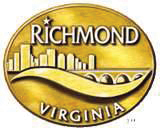
If you don’t know the background, you may want to read previous posts here and here.
Remember that City Council passed the ‘Richmond300’ plan over a year ago, during the holidays when most people were pre-occupied with family matters, in a pandemic emergency, during which the Virginia Attorney General called on municipalities to suspend all non-life-threatening business, and specifically land-use issues.
Also remember that City Council voted for this despite opposition from many different parts of the City, but especially from this neighborhood, which has taken part in the process from the beginning, put up with bad online ‘presentations’, and has consistently asked for changes in the plan.
Most importantly, remember City Council passed it with the promise to amend it.
Some neighbor’s statements:
http://richmondfreepress.com/news/2020/nov/05/oregon-hill-neighborhood-open-speculation-destruct/
https://www.styleweekly.com/richmond/opinion-let-us-succeed/Content?oid=16786088
Now, here we are in 2022, and Councilperson Lynch has put language in anan amendment resolution before City Council, on the agenda for this coming Monday meeting.
It may decide on whether this historic neighborhood survives in the long term.
The City administration promised that it would be easy to amend the Richmond 300 master plan, and it is important for the city to keep this promise! The Richmond 300 committee ignored the request of the Oregon Hill Neighborhood Association and our City Councilor Stephanie Lynch that Oregon Hill be designated with a RESIDENTIAL future land use designation.
RESIDENTIAL future land use conforms to Oregon Hill’s current R-7 zoning that we fought hard to achieve. The Mixed-Use designation would undermine our R-7 zoning because an aim of the master plan aims to change zoning to match the future land use designation.
RESIDENTIAL future land use designation matches the function of 99% of the homes within our R-7 zoning and is consistent with the function of the dense historic neighborhood.
RESIDENTIAL future land use designation has a 1-3 story height limit that conforms to the R-7 zoning with a 35′ height limit, while the Mixed-Use designation has a much higher height limit of 2-4 stories and even higher on major streets like Idlewood and Laurel.
RESIDENTIAL future land use designation would encourage Special Use Permit applications to conform the existing R-7 zoning.
RESIDENTIAL future land use designation was approved for our sister neighborhood in Randolph, with which Oregon Hill has much in common.
RESIDENTIAL future land use designation promotes a cohesive neighborhood of families living in Oregon Hill, while the taller Mixed-Use designation would encourage developers to demolish Oregon Hill homes for dormitories for students at the adjacent Virginia Commonwealth University.
RESIDENTIAL future land use designation does not discourage the adaptive re-use of corner storefronts which have always been encouraged in Oregon Hill.
It’s also worth noting that there is no question that renovating and retrofitting a building has significantly lower upfront carbon emissions than demolishing and replacing a building. Oregon Hill residents who have worked hard for historic preservation over decades are fully supported by environmental reasoning.
City Council meets at 6 pm, on the second floor, at City Hall, 900 E. Broad St.
